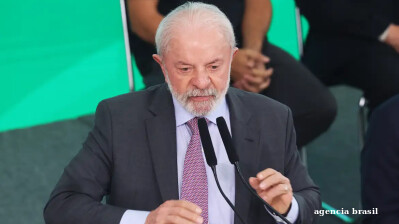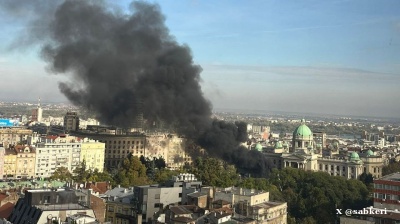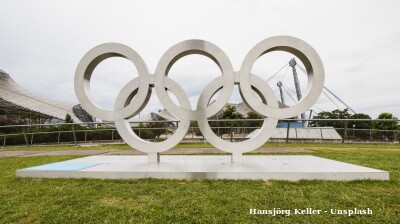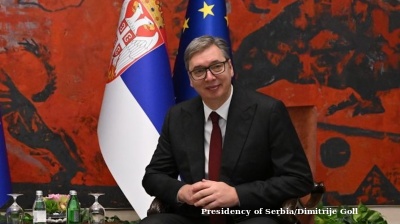Ukrainian economy and war effort threatened by trucker blockade on Polish border, says head of Ukrainian Federation of Employers

The trucker blockade on the Ukrainian-Polish border is having serious negative effects on the Ukrainian war effort and is damaging the country’s fragile economy.
That’s according to Ruslan Illichev, the general director of Ukrainian Federation of Employers, who told bne IntelliNews that all stakeholders – including the governments in Kyiv and Warsaw – must come together to end the blockade swiftly.
With the support of some Polish farmers, truck drivers have blocked numerous border crossings with Ukraine, in protest against the removal of a quota system that restricted the number of Ukrainian trucks that were allowed to transport goods to and from the EU to just 200,000 entries a year. Brussels lifted this restriction in 2022 in order to help Kyiv defend itself from Russia’s full-scale invasion. Polish drivers say their livelihood is at serious risk as Ukrainians can afford to charge less, undercutting EU trucking companies and hurting their earnings.
“It is not only a blockade with Poland; in practice it is the total blockade of free trade with the European Union,” Illichev explained to bne IntelliNews, “so the situation is very serious.”
According to Illichev, the blockade is hitting Ukraine in numerous ways, dealing a significant blow to the Ukrainian economy. With trucks waiting up to 35 days to cross the border, many companies are seeing direct losses to logistics delays. Furthermore, some of these companies are also forced to pay fines for failing to deliver goods on time, despite attempts to invoke force majeure. Many companies are also facing the possibility of losses far into the future, with foreign businesses seeing the blockade as a sign that Poland may continue to be obstructive in the future, with absolutely no guarantee that this won’t happen again. In addition, with fewer trucks crossing the state border, that means Ukraine is receiving much less in customs fees, negatively affecting the government budget which it uses to pay salaries and fund public services.
However, the most serious reason for Kyiv’s concern is how border blockage is negatively affecting the war effort.
“We don’t make everything in Ukraine. Almost every company in Ukraine that produces something uses components that are imported from the European Union,” Illichev said.
This includes many different sectors, including the most important for Ukraine in 2023 – the weapons sector.
“The Polish protesters say that they let through humanitarian and completed military technology, but that there are fact hundreds of millions of components that are used to make military equipment [that aren’t allowed to pass],” he continued.
In order to find a solution, Illichev’s federation has entered consultations with Poland’s Union of Entrepreneurs and Employers, and he has made it clear that Ukrainian employers are willing to be cordial and come to a compromise solution.
“We are ready to listen. We understand that the Polish transport sector has concerns. They have the right to ask those questions. We are ready to be friendly, we are ready to talk,” he explained. “But this is not only about money and business. This is about the survival of the Ukrainian economy.”
However, as Polish truck drivers demand that the former quota system return, Illichev notes that this system was not perfect either. Before the blockade, Polish drivers didn’t want to go into Ukraine, due to a combination of problems at the border and bad roads. This reluctance increased following Russia’s invasion of Ukraine, amidst the risks associated with driving into a war zone.
“And now, not one Polish driver, nor Slovak or Hungarian, wants to drive to Nikopol, which is hit by Russian artillery every day. Nobody wants to drive to Kharkiv. Only Ukrainian drivers will do this route,” he explained.
With the war at a stalemate and the economy threatening to collapse, Illichev expressed hope that the incoming Polish government – likely led by the pro-EU figure Donald Tusk – will help find a solution quickly.
“Every single day is important for us. We can’t afford to wait.”
News

Switzerland reopens Baghdad embassy after 30-year closure
Switzerland reopened its Baghdad embassy after 30 years, with Iraqi and Swiss foreign ministers officiating ceremony reflecting confidence in Iraq's stability and signalling expanded economic cooperation.

Brazil's Lula announces fourth presidential run at 80
Brazilian President Luiz Inácio Lula da Silva has announced he will seek re-election in October 2026, confirming his candidacy during a state visit to Indonesia on October 23.

Serbian president blames opposition for “terrorist attack” outside parliament
President Vucic blamed opposition groups for what he described as a “terrorist act” outside the National Assembly in Belgrade, after a 70-year-old man opened fire on a camp of government supporters and set fire to one of their tents.

IOC sanctions Indonesia over Israel visa ban
The International Olympic Committee has announced that international sports federations will be advised not to hold competitions or meetings in Indonesia after the country barred Israeli athletes from entering.



